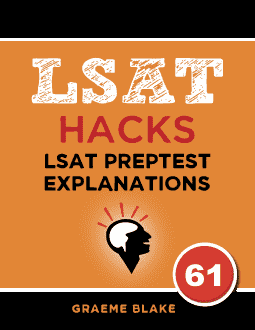QUESTION TEXT: To find out how barn owls learn how to determine…
QUESTION TYPE: Flawed Reasoning
CONCLUSION: Once owls learn how to hear, they don’t use their eyes to locate sound.
REASONING: Scientists put distorting lenses over young owls’ eyes. These owls thought that sounds were further to the right than the sounds actually were. This error continued after the lenses were removed. The owls wore the distorting lenses from youth to maturity.
ANALYSIS: I simplified the stimulus, above. Basically, the owls think sounds come from further right than the sounds actually do.
The conclusion itself is crazy, if you think about it. The conclusion says that all adult owls stop using vision to locate sound. Again, all owls, not just those that had distorting lenses.
That’s ridiculous. The argument has failed to consider an obvious alternative hypothesis: blinding the test owls for years has permanently damaged their vision. That’s why they aren’t using their eyes!
This is a complicated stimulus, but you should reread it to understand it before looking at the answers. Rushing to the answers without understanding the stimulus will slow you down, not speed you up.
___________
- CORRECT. See the analysis above. If you had worn distorting lenses from ages 1 to 18, you’d probably have messed up vision too.
- The argument didn’t say that every individual owl has equally good vision! An answer can’t be a flaw if it didn’t happen.
- The argument didn’t say that owls reason. An answer can’t be a flaw if it didn’t happen.
- We’re only talking about owls. It doesn’t matter how lenses would affect other birds.
- This didn’t happen. It’s very rare for an argument to use irrelevant evidence.
Example of flaw: Gerbils can have their sense of hearing messed up if they’re exposed to loud noises. Therefore, this proves that owls stop using vision to locate objects.


Leave a Reply